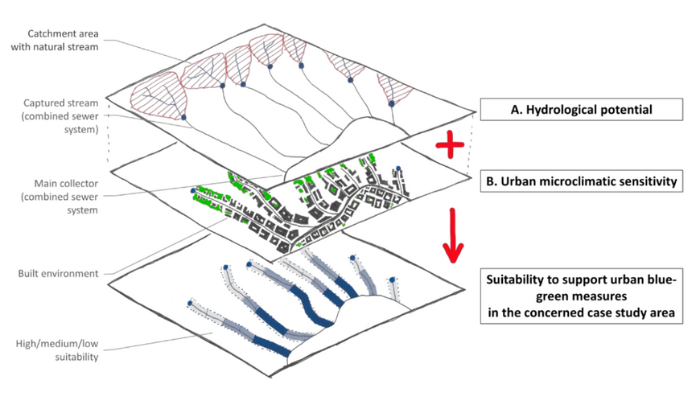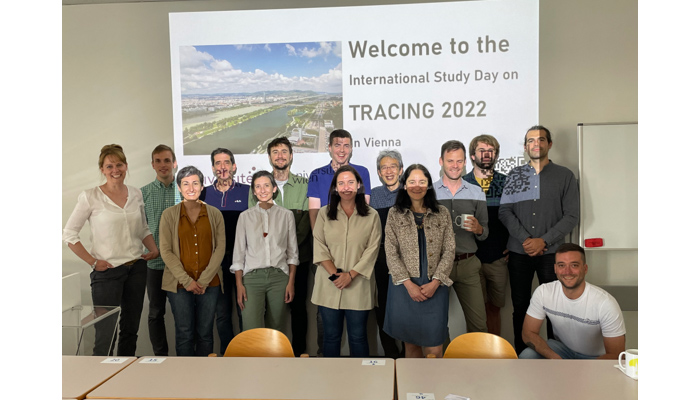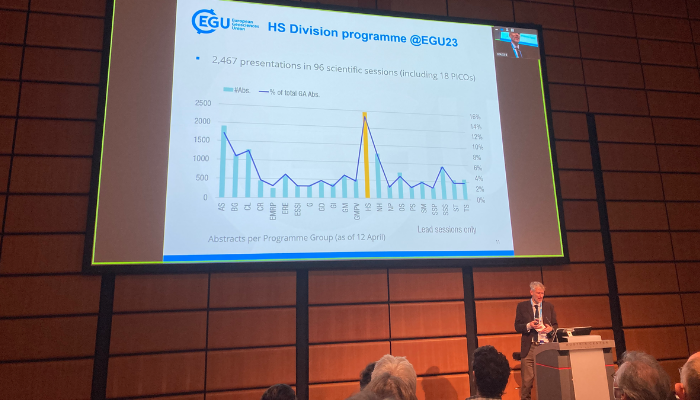Soil and water resources that are essential to human and aquatic life are increasingly threatened by human activities and the impacts of land use and climate change. Sediments play hereby a key role, particularly fine sediments with sediment-associated pollutants, which can lead to a substantial degradation of water body quality, such as in rivers and reservoirs. Sediment tracing as a first step t ...[Read More]
Wrapping up EGU23: A Hydrologist’s Look Back
Summarising such a week is almost an impossible task. First, it is worth highlighting that, on-site, we were back to a format with oral presentations, PICOs, and posters. Virtual participants could join the oral sessions and the PICO pitches via Zoom. Virtual boards were also available for the online poster sessions and PICOs. The format of 10-min oral presentations (questions included) was a chal ...[Read More]
Urban streams can provide water sources for climate change mitigation

With advancing climate change, mitigation measures are necessary to fight urban heat islands. Reactivating urban streams as blue-green infrastructures can contribute to this mitigation, and serve as an invaluable water resource. Urban streams – banned to the underground In urban areas, hydrological conditions have been modified, impacted or completely changed for centuries. Rivers and stre ...[Read More]
Heads Up: Early Career Hydrologists Highlights at EGU 2023
The upcoming annual EGU General assembly in Vienna is a fantastic opportunity for early career scientists (ECS) to engage with the international hydrological community, present their work, and build their networks. But with the multitude of sessions, events, and lectures, it can be tricky to assemble your personal program – especially if it’s your first time attending EGU. We’ve got your ba ...[Read More]



